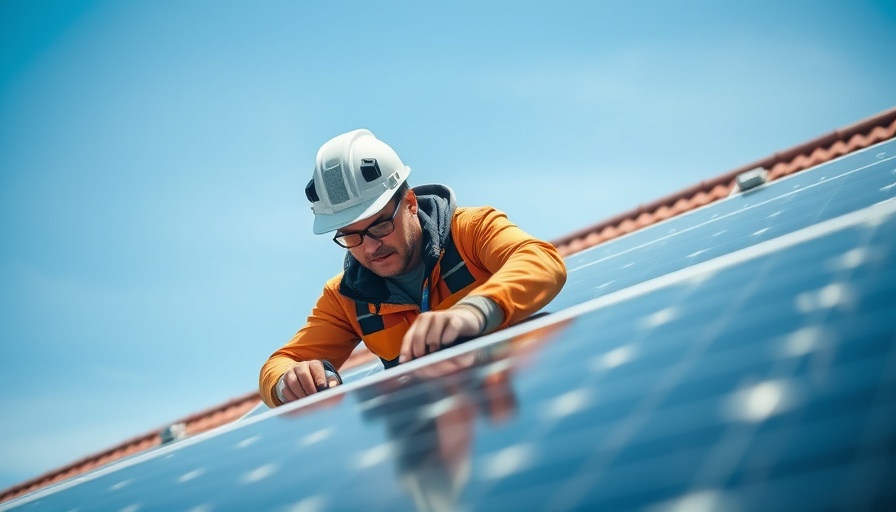
Understanding the Financial Savvy Behind Solar Panels
For many homeowners today, investing in solar panels represents more than just a green initiative; it's a financial choice that hinges on numerous factors. As the costs of energy continue to rise, solar panels have emerged as an appealing alternative. The question remains: are they worth the initial investment?
The Initial Costs vs. Long-Term Savings
The upfront costs of solar panels can be daunting, typically ranging between $15,000 to $25,000 before tax credits and rebates. However, it’s crucial to consider these figures in the context of long-term savings. Under the right conditions, homeowners can save significantly on electricity bills, often offsetting installation costs over time. States with high electricity rates, such as California and New York, see particularly swift returns on investment.
Tax Incentives and Financial Benefits
Homeowners can take advantage of federal tax credits, which can cover up to 26% of installation costs through 2022. This incentive, coupled with various state and local programs, makes solar energy more accessible than ever, potentially enhancing your equity while lowering your overall financial burden.
Environmental Benefits Beyond Cost Savings
Investing in solar panels reflects a commitment to environmental stewardship. Each solar installation contributes to reduced carbon emissions, as solar energy significantly lessens reliance on fossil fuel-generated electricity. This not only offers long-term benefits for the planet but also aligns with a growing trend among consumers who prioritize sustainability.
Analyzing Home Resale Values
A further aspect of the solar conversation is how installations affect home resale values. Reports indicate that homes equipped with solar energy systems sell for a premium compared to traditional homes. This can translate into higher overall returns when selling, especially in competitive housing markets.
Common Misconceptions About Solar Energy
Despite the positives, misinformation abounds regarding solar energy. One common myth is that solar panels are ineffective in cloudy or rainy climates. In reality, solar panels can produce electricity even in less-than-sunny conditions, making them a viable option for many regions across the country.
Future Predictions: Trends Shaping Solar Technology
As technology continues to evolve, the solar industry is experiencing rapid advancements. Innovations such as transparent solar cells and improved battery storage options are on the horizon, offering even greater efficiency and practicality for homeowners. The role of artificial intelligence in energy management systems is another exciting trend, potentially optimizing energy consumption based on real-time data.
Your Next Steps: Is Solar Right For You?
Deciding on solar energy installation involves assessing personal energy needs, budget constraints, and long-term goals. Homeowners should research local incentives, consult trusted contractors, and calculate potential savings. It's also worthwhile to explore financial options, including solar leases and power purchase agreements, which can reduce initial expenses while allowing access to solar energy.
Conclusion and Next Steps in Your Solar Journey
Investing in solar panels has proven benefits extending far beyond mere monetary savings. Understanding the financial landscape, environmental impact, and future of solar technology presents a compelling case for many homeowners. Whether considering an installation for immediate savings or contributing to a sustainable future, the possibilities with solar energy remain broad and promising.
 Add Row
Add Row  Add
Add 




Write A Comment